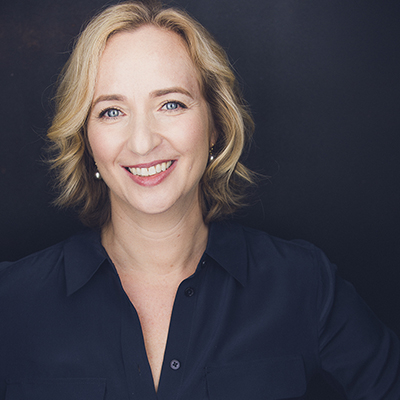
Insight
Is being single bad for the economy?

I was having a conversation recently about the future of wealth - what can I say, I am an economist - when I heard an argument that was so retro I thought it was 1982: America needs to revive the stigma against being single.
As a single person myself, my first reaction was indignation. Then, after a few moments, another thought occurred to me: Maybe that’s not a terrible idea.
Americans aren’t getting married as much as they used to. In some ways that reflects a more liberated society in which people can live the lives they want, with no judgment. But the rise in singleness - as distinct from unmarried but living together - is creating what economists call a negative externality. Perhaps the stigma against singlehood had some benefit.
Personally, if I must endure some cost to being single, I would prefer the disapproval of society over being taxed. And it may be more cost-effective.
But I am getting ahead of myself. The question of whether singlehood needs to be stigmatized, and if so how, depends on why more people are unpartnered in the first place.
One popular theory is that men have just become less compelling to women. The sexual revolution and the shift to a more service-oriented economy resulted in a rise in stature for women: They have more education and more well-paid jobs, while many men are struggling in the new economy. Women find these guys unappealing, the theory goes, and see singlehood as a better alternative.
But “men are unappealing,” true as it may often be, is not enough of a reason to not get married. Marriage is becoming less common because there is less of a stigma to being unmarried - and there is less of a stigma because the nature of marriage changed as the economy did.
For most of human history, marriage was a necessary economic and social agreement, especially for women. The world was risky; there was little or no safety net, and people were more likely to die young.
Women in particular had few jobs available to them and limited ways to improve their social status. Finding a partner was their best hedge - hence the stigma against being single.
Consider France between the world wars. It lost about a fifth of its young male population in World War I, which meant there were fewer men to marry. And yet marriage rates spiked after the war and stayed high for the next decade.
Research shows that French women ended up marrying men they might have not otherwise considered: men out of their preferred age range, foreign men, men who in normal times would not have been “competitive” in the marriage market (read: early 20th century versions of incels), men who were widowed or divorced.
Back then, the economic and social consequences of being unmarried were worse. So women settled because they had to.
Now women don’t have to settle. Not only do they have better economic prospects, but there is no stigma against singleness or single motherhood, even if it is more expensive. And there is now an expectation that a partner should be an intellectual, social and emotional equal. Assortative mating - marrying someone with similar economic and educational attainment - has become the norm.
College-educated women are still marrying, for the most part - even men without college degrees. The decline in marriage rates is most stark for American men and women without a college degree.
In some ways these are all positive developments. Women have more choices - both to wait for a good marriage and leave a bad one - and are more empowered. They can marry someone they have more of a peer relationship with, which may make for a more satisfying marriage. That may explain why divorce rates, like marriage rates, are also down.
But there are negative externalities to a society with less marriage. Assortative mating may mean better marriages for those who do marry, but it also worsens economic inequality - with the worst consequences for the poorest, who are now less likely to marry and struggle more on a single income.
The fall in marriage may also explain some of the decline in fertility, and the US needs more people.
Perhaps the stigma against being unmarried, even when there is less of an economic and social need to be married, had some value. At the same time, I shudder at the notion that my choices would be stigmatized, or that I would feel pressure to marry someone I am incompatible with - even if I do pose a cost to society.
And while a little stigma might not be a bad thing, there is a limit. There would be no economic benefit from a return to the days when women felt compelled to enter or stay in terrible marriages.
All of which raises the question of whether a societal stigma can be calibrated just so. After all, those “compensating marriages” of interwar France did not result in more divorces.
Then again, what choice did they have?
(COMMENT, BELOW)
Allison Schrager, a Bloomberg columnist, is a senior fellow at the Manhattan Institute and a contributing editor of City Journal.
Previously:
• Our pensions shouldn't be used to juice the economy
• A soft landing won't mean the economy is safe
• The 30-year mortgage is saving the U.S. economy … or is it?
• The one true secret to successful investing
• Less work, more burn-out
• When did risk become a bad word in the U.S.?
• AI-proofing your career starts in college
• Biden has to learn the same lesson as SVB
• Say it with Rubio: Changing clocks is stupid
• Sure, we'll return to the office in 2023 but not to stores
• How to manage the biggest risk of all: Uncertainty
• If you think U.S. pensions are safe, just wait
• Harry and Meghan and the perils of superstar culture
• Norman Rockwell's economy is never coming back
• Burned by crypto? Don't learn the wrong lesson
• Quiet Quitters are looking in the wrong place for meaningful work
• America's MBAs are the latest skeptics of capitalism
• Generation Z is getting a harsh lesson in stock risk
• The biggest threat to the U.S. economy is policymakers
• Buck up, boomers. You're still better off than your parents
• How to manage the biggest risk of all: uncertainty
• Startup boom is the kind of risk-taking Americans need
• Gen Z is too compliant to achieve greatness
• A bigger child tax credit isn't the poverty solution we need
• Finding your power in a higher-priced world
• The Biden administration's plans to double the tax rate on capital gains will prove costly to all Americans, not just the wealthy
• WARNING: Feel Good Now --- Pay Later: Stimulus is crammed with goodies but makes no economic sense
• The 'Stakeholder' Fallacy: Joe Biden's vision of capitalism is a recipe for failure


 Contact The Editor
Contact The Editor
 Articles By This Author
Articles By This Author